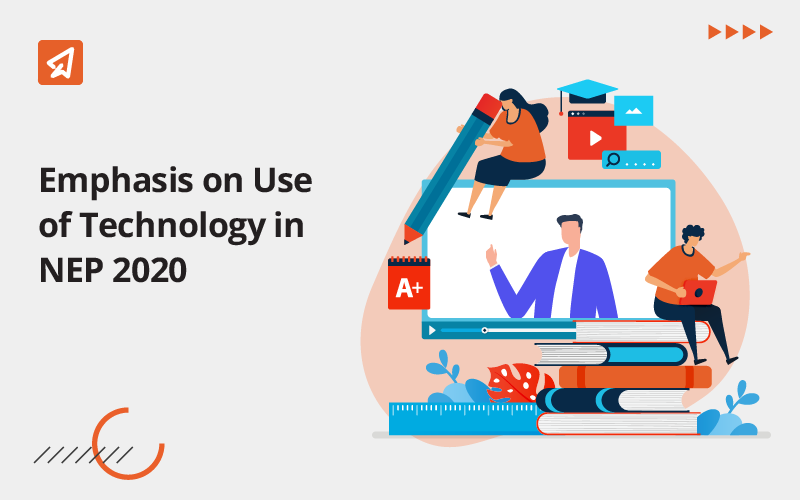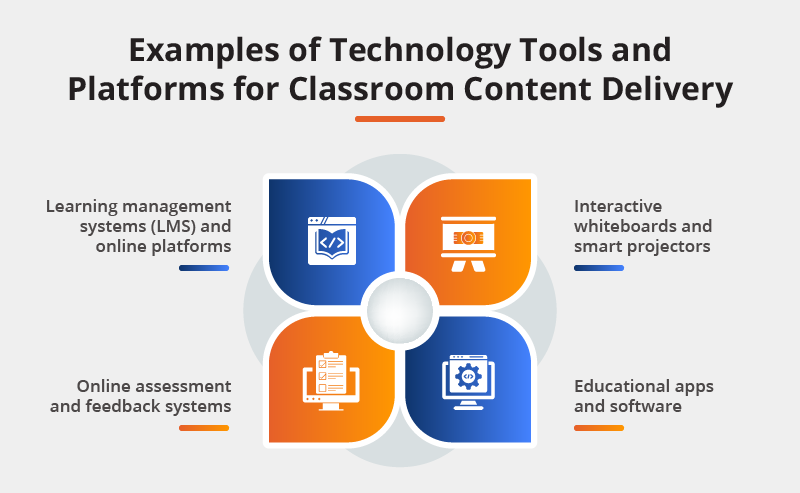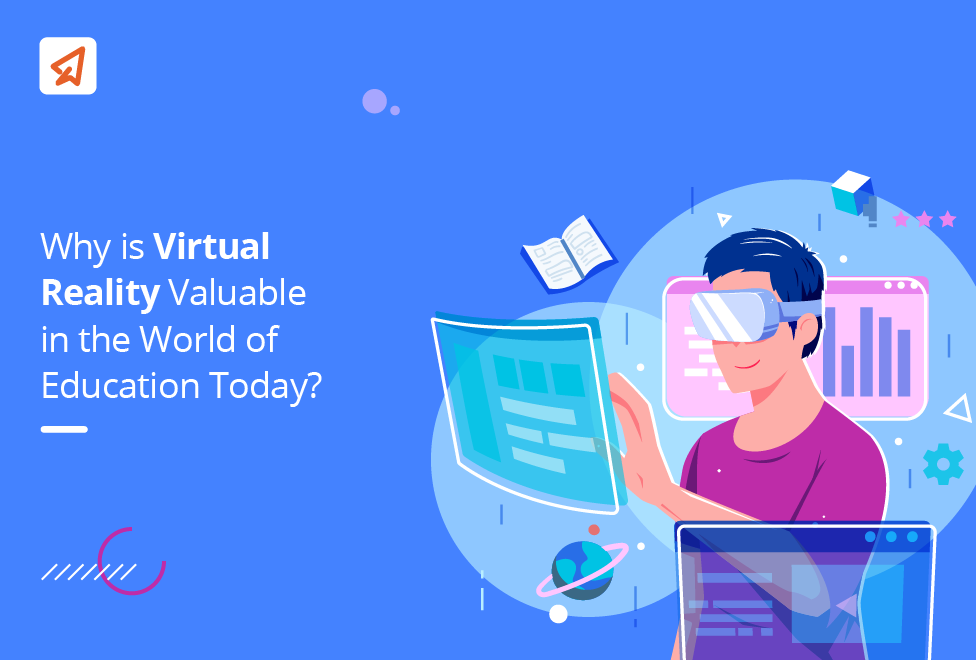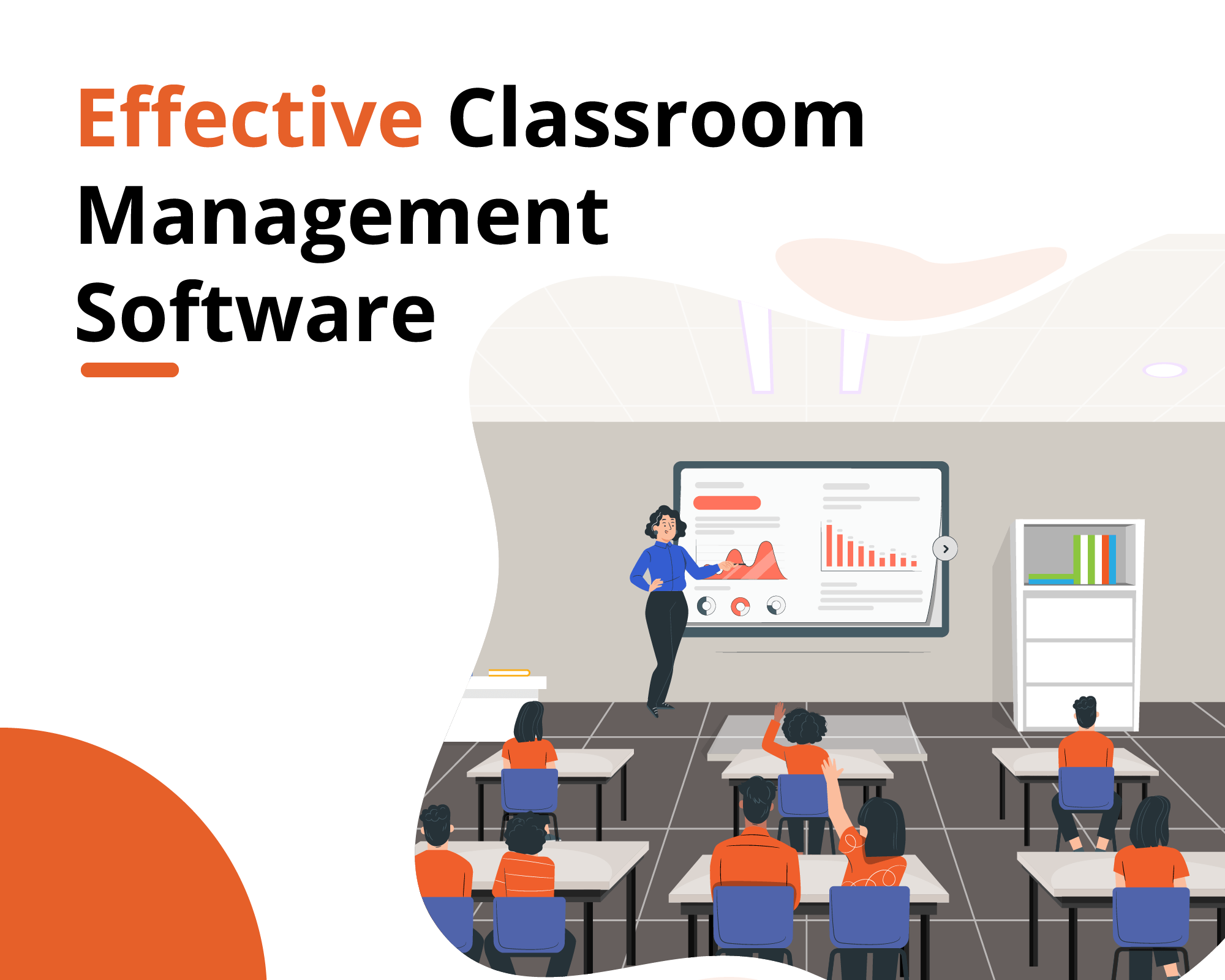Emphasis on Use of Technology in NEP 2020: How Does it Ensure Digital Equity

Given how rapidly technology has become a necessary part of the education system in the recent past, the National Education Policy 2020 (NEP 2020) has aptly recognised the importance of technology in education and brought the Digital India campaign into the education domain as well. The NEP 2020 mandates that technological infrastructure be constantly upgraded and set up across India. It is also cognizant of the requirement to grow digital skills, especially among teachers and educators, and the need for ensuring technological and online safety.
Use of Technology in Classroom Content Delivery as per NEP 2020
NEP 2020 acknowledges that different advancements in technology such as educational software, artificial intelligence, blockchain, handheld computing devices, adaptive computer testing, etc. will play an important role in changing what and how students learn at school. Thus, integrating digital technology in education requires detailed research toward development of teachers, improvement of teaching and assessment processes, equity in technological access and administrative tasks such as admissions processes, planning, attendance, etc.
Importance of technology integration in education
1. The recent occurrence of a pandemic has underlined the importance of having alternative methods for imparting education whenever the in-person method is not possible.
2. Online programmes ensure education and training of teachers at a much faster pace to prepare them for remote teaching.
3. Online education makes it possible to reach the remotest of places as well as students with disabilities. However, this first necessitates access to technology and connectivity networks across the country which is being made possible through campaigns such as Digital India.
4. Technology will help build digital libraries and repositories, facilitating access to course content irrespective of language barriers between teacher and student.
Methods for enhancing the NEP 2020 school with digital technology in education
In order to bring about the vision of full scale integration of technology with the education system, as required under the NEP 2020, thorough evaluation of new technological interventions such as softwares, smartboards, computing devices, etc. needs to be done from a technological and educational point of view. Let us see some of the methods and initiatives rolled out for achieving this.
1. The National Educational Technology Forum (NETF): The NETF, an autonomous platform for free exchange of ideas to improve learning, planning, administrative activities, assessment for schools and educational institutions, will provide latest updates and knowledge to educational institutions and aid decision making for use of technology. It will also work in an advisory capacity to the central and state governments, identify strategic areas for technological penetration, research and innovation in the education domain. The National Educational Technology Forum shall also prescribe standards for online learning, content and pedagogy and conduct regional and national conferences to seek ideas and inputs from educational technology researchers and entrepreneurs. Lastly, the NETF will analyse and categorise new innovations and technologies and present these to the Ministry of Education along with the time expected for implementation of such technology
2. DIKSHA portal: Educational software in all major Indian languages will be developed by states and made available and accessible to teachers and students, including those in rural areas. The Digital Infrastructure for Knowledge Sharing (DIKSHA) portal of the Government of India, created for teachers as infrastructure for the entire teaching lifecycle, will be used to house such software
3. Equipment for teachers: Teachers will be provided with required equipment to enable inclusion of digital technology in education. Use of technology in NEP 2020 requires that such initiatives be integrated across schools and colleges and undergo periodic qualitative updates through feedback from users
4. Disruptive technology: The National Research Foundation, along with higher education institutions (HEIs), will promote application-based research in the field of Artificial Intelligence (AI) for creation of online teaching materials and courses. Trainings and programs, made possible by adopting technology in higher education, will be set up to impart new skills required for jobs that may become redundant due to AI
Key Provisions of new NEP 2020 related to Technology in Classroom Content Delivery
1. Emphasis on digital literacy and digital learning: Studies will be conducted by appropriate institutions to understand the benefits of integrating online with offline education and evaluate important aspects of it such as addiction to devices, preferred formats of e-content, etc.
2. Integration of technology across subjects and grade levels: Digital technology in education will be introduced during the initial years of the school system itself to ensure availability and accessibility of education to all and improve enrolment rates. Special emphasis will be laid on availability of content for subjects in all Indian languages
3. Use of educational apps, online resources, and digital platforms: NEP 2020 recognises the need for open, scalable, public digital infrastructure that can be used across various platforms and cater to India’s size and diversity. Such solutions will have to be robust and keep up with rapid advances in the technological realm. Existing platforms such as DIKSHA will be made available to teachers to assist with online delivery of education
4. Promoting blended learning and flipped classroom models: While online education has become a necessity today, NEP 2020 also acknowledges the importance of face-to-face teaching and learning and mandates blending of the two effectively. With flipped classrooms, reading/recorded course material can be shared in advance with students for preparation and classroom time utilised for discussion and application of knowledge gained from the course material. This gives more time to students to assimilate the information and resolve queries and makes class time truly interactive
Examples of Technology Tools and Platforms for Classroom Content Delivery

1. Learning management systems (LMS) and online platforms: To implement use of technology in NEP 2020, existing online systems such as SWAYAM, DIKSHA and SWAYAMPRABHA will be used to provide access to practical and experiment-based learning experience to all students and maintain records of students’ performance. SWAYAMPRABHA, for instance, has 32 DTH channels for telecasting quality educational modules which are available 24×7.
2. Interactive whiteboards and smart projectors: Interactive smartboards and projectors help teachers for collaboration with students, incorporating videos, brainstorming in online classrooms and storage of digital content. They can also be connected with multiple remote screens, thus providing interactive displays at various locations. Extramarks Smart Class Plus is a prime example, providing quick access to teachers to interactive content through its whiteboard, as well as tools required for delivering it.
3. Educational apps and software: Unlike physical classrooms, apps and software, such as Extramarks Smart Class Plus, provide an individualised learning experience to students, specially in terms of pace of learning. Teachers can then adapt their classes to focus on slow learners. Also, smartphones allow easy access to learning apps and for interaction between teachers and parents for feedback.
4. Online assessment and feedback systems: Bodies, such as the recently formed PARAKH, will develop assessment templates. Such templates shall encapsulate competencies of students addressed under NEP 2020 and skills required in the 21st century.
Challenges and Considerations in Using Technology in Higher Education:
Given the constantly evolving nature of technology and the unique character that the Indian diversity presents, overcoming below challenges will be an ongoing process for both, the government authorities and schools, alike.
1. Privacy and data security concerns.
2. Equipment costs and maintenance.
3. Inadequate and continuous training for teachers for online teaching as well as availability of the right resources to integrate technology in classrooms.
4. Lack of electricity and rigidity in attitude to adopt online education, especially in rural areas.
5. Limitations for delivering content for certain subjects and courses online.
How can Extramarks aid Schools in Implementing Technology-based Content Delivery as per the guidelines of NEP 2020?
NEP 2020 is bringing about significant transformations in Indian schools. The use of technology in education is at the forefront of these transformations. To enable schools to ensure quality content delivery to its students, we have introduced a 360 degree solution called Extramarks Smart Class Plus. This offering provides a cutting edge academic experience to schools through NEP-ready interactive and game-based content, interactive whiteboards, online and offline assessments and grading, student performance reports, classroom admin management options, etc. Additionally, all curriculum is regularly updated to reflect new interactive capabilities as well as changes in policy. The content is prepared by an in-house team of highly qualified subject-matter experts and is used by over 10,000 leading schools in India.
Extramarks also offers the TeachingApp which is an end-to-end solution for individual teachers to create and conduct classes online. With just three easy steps, it enables teachers to begin teaching for all classes and multiple boards.
Since the inclusion of kindergarten under NEP 2020, Extramarks also offers a module for toddlers for fun, activity-based and game-based learning. With customised apps offered for students, teachers and parents, catering to their specific needs, under the same umbrella, Extramarks is a top choice among all stakeholders.
Conclusion
NEP 2020 has reiterated the importance of technology in education and also laid down the challenges peculiar to our country. Government authorities, in association with researchers and technology experts, are working on overcoming challenges of setting up necessary digital infrastructure, affordable devices for stakeholders, developing content, teacher training, staying updated with the ever-changing technology domain, etc. Schools need to establish a comprehensive tech policy, educate students and parents with respect to leveraging technology for better educational outcomes and implement the policy objectives on an ongoing basis.
There are several initiatives of the government, such as DIKSHA and SWAYAM, to provide schools with ready solutions to drive the technology imperative. Additionally, we have a comprehensive solution for schools called Smart Class Plus, that is transforming all traditional teaching processes into seamless online features through online course material, interactive learning, online and offline tests, performance reports, class recordings, interactive whiteboards, classroom admin activities etc. Going forward, it will be crucial for schools to make the most optimal use of such solutions to become digital-ready and future-ready.
FAQs
1. Which bodies/institutions will develop teaching and learning e-content?
Ans: Teaching e-content will be developed by all states in all regional languages and by the NCERT, Central Institute of Educational Technology (CIET), CBSE, National Institute of Open Schooling (NIOS) and will be uploaded on DIKSHA platform
2. Where can I find further details about DIKSHA and SWAYAM initiatives?
Ans: Below is the link for the DIKSHA, the national digital infrastructure for teachers.
https://www.india.gov.in/spotlight/diksha-national-digital-infrastructure-teachers
Link for SWAYAM, the programme set up by the Government of India to ensure equity, access and quality of education is given below.
SWAYAM portal contains courses in the form of video lectures, downloadable reading material, self-assessment tests and online discussion forum.
3. Are there any digital softwares providing a complete solution for schools to be in line with the digital needs of NEP 2020?
Ans: Extramarks offers a 360 degree e-learning solution for schools, called Smart Class Plus, covering every possible requirement for delivering a high quality online educational experience.
Details are available at the following link: Extramarks Smart Class Plus.
Last Updated on April 16, 2025
Reviewed by

Prachi Singh | VP - Academics
Prachi Singh is a highly accomplished educationist with over 16 years of experience in the EdTech industry. Currently, she plays a pivotal role at Extramarks, leading content strategy and curriculum development initiatives that shape the future of education...read more.









